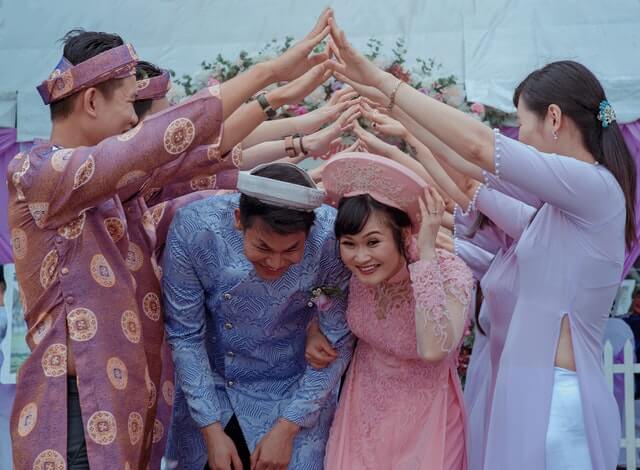This Blog is written by Jatin Pandey from Dharmashastra National Law University, Jabalpur. Edited by Karan Dutt.
Reservation is one of the debated topics in the contemporary times. In India, reservation policy is the process of reserving some percentage of seats for backward sections of the society, schedule caste, schedule tribe, in government jobs, institutions, etc. In my opinion reservation based on the caste is detrimental to society and its interests. This form of reservation instils enmity in society and fosters a sense of inequity…
This Blog is written by Tanvi Sanjay Rane from Dr. D.Y. Patil College of Law, Maharashtra. Edited by Karan Dutt.
Privacy literally means the quality of being secluded from the presence or view of others or the condition of being concealed or hidden. It entails the quality or state of being apart from company or observation. It is the freedom from unaccredited invasion. It is an important aspect of human dignity and is inseparable from a dignified human existence. It has thus been recognised as a fundamental human right in…
This Blog is written by Aditya Awasthi from Asian Law College, Noida. Edited by Pranoy Singhla.
India is a country which consists of large number of crimes and criminals. In India all punishments are based on the motive to give penalty for the wrongdoer. There are two main reasons for imposing the punishment, one is the wrongdoer should suffer and other one is imposing punishment on wrongdoers discourages other from doing wrong. There are different kinds of punishment in India based on their offence…
This Blog is written by Surbhi Pareek from NALSAR University of Law, Hyderabad. Edited by Pranoy Singhla.
Several Native American tribes have embarked on a venture into the uncharted territory of intellectual property rights in recent decades so as to their right self-determination, economic independence, and safeguard their cultural identity. The protection of Native American intellectual property rights is rarely discussed in the prevalent legal literature on intellectual property law in the United States, even though…
This Blog is written by Prerna Ganti from Symbiosis Law School, Hyderabad. Edited by Pranoy Singhla.
In the modern world, every nation is competing with each other to succeed in all fields. Various technological innovations, business ventures are being introduced to increase the growth and economy of the nation. Governments of all the nations are looking for ways to build their economy and develop the country. Thanks to the human brain, in fields such as technology, information, and culture, various advanced…
This Blog is written by Geetanjali Sharma from University of Petroleum and Energy Studies, Dehradun. Edited by Karan Dutt.
If the consent was acquired by a false promise of marriage within the meaning of Section 375 of the Indian Penal Code, 1860, whether sexual intercourse with the women amounted to rape. In India, rape was considered a crime, and those who committed it were punished. Marriage is seen as a holy bond between two individuals. It is more than just a sexual relationship; it also includes emotional and spiritual intimacy…
This Blog is written by Kashish Batta from University of Petroleum and Energy Studies, Dehradun. Edited by Karan Dutt.
Women of India have been treated differently since time immemorial. Even after independence, women were discouraged from doing many things and were regarded as carers of the house. This type of inequality prevailed despite so many goddesses being worshiped in the country. Even today, even though there is a great improvement in gender equality compared to what it was before independence, society’s…
This Blog is written by Kashish Batta from University of Petroleum and Energy Studies, Dehradun. Edited by Karan Dutt.
Assisted suicide basically refers to the deliberately ending our or someone life. Mainly this is done to get from suffering or to relieve from the suffering from which the person is suffering. Different countries have their different laws for the euthanasia. The word euthanasia has been derived from the Greek word in which eu means the good or well and whereas Thanatos means the death. This euthanasia is not a right…
This Blog is written by Anjana Vijay from University of Petroleum and Energy Studies, Dehradun. Edited by Karan Dutt.
Any party can be considered as ‘suffering’ when something they may have been enjoying was taken over by another party to issue. This is a violation of the party’s rights and is legally binding with efficient remedies. The legal remedy is one of these remedies. When the victim is rehabilitated to the position as before their rights were violated, he is said to have a legal solution…
This Blog is written by Nayantara Rao from Amity University, Mumbai. Edited by Karan Dutt.
Under sexual offences there are a range of various crimes which can be considered, including non-consensual crimes such as sexual assault or rape, crimes against children including grooming or child sexual abuse, and exploitative crimes towards others for a sexual purpose, whether it be in person or on online. Domestic abuse, sexual offences, harassment, rape, stalking, so-called ‘honour-based’ violence which…
This Blog is written by Anwesha Kundu from Amity University, Kolkata. Edited by Karan Dutt.
Not all work done by children should be classified as child labor that is to be targeted for elimination. Children’s or adolescents’ participation in work that does not affect their health and personal development or interfere with their schooling, is generally regarded as being something positive. This includes activities such as helping their parents around the home, assisting in a family business or earning pocket…
This Blog is written by Vibhuti Rao from Symbiosis Law School, Noida. Edited by Karan Dutt.
The Hindu Succession Act of 1956 was a watershed moment in Hindu law for women. For the first time, a Hindu woman was given the opportunity to become the property’s sole owner. She had the same right to inherit as a man, and a window was given special consideration in the succession of both her husband’s and her father’s properties. The Hindu Succession (Amendment) Act of 2005 is a law that amends the…
This Blog is written by Anjana Vijay from University of Petroleum and Energy Studies, Dehradun. Edited by Karan Dutt.
The Industrial Disputes Act, 1947 is an important law aimed at finding the right treatment for workers’ and industrial peace, which is essential to promoting the economic growth of any country. In terms of section 2 (j) of the Industrial Dispute Act, the industry is defined in two categories as, “any business, trade, practice, performance or calling of employers, and includes any call, service, employment, manual or…
This Blog is written by Nayantara Rao from Amity University, Mumbai. Edited by Karan Dutt.
On all key dimensions, substantial intercountry differences in IPR regimes can be seen in the level and scope of protection, the strictness with which legislation is enforced, the mechanisms used and the way violations are penalized. The duration in the case of patents varies considerably from around 5 to 20 years, and usually shorter terms are more commonly found in industrializing countries. Most countries…
This Blog is written by Anjana Vijay from University of Petroleum and Energy Studies, Dehradun. Edited by Karan Dutt.
Domestic violence is a burden on numerous sectors of the social system and quietly, yet dramatically, affects the development of a nation… batterers cost nations fortunes in terms of law enforcement, health care, lost labor and general progress in development. These costs do not only affect the present generation; what begins as an assault by one person on another reverberates through the family and the community…
This Blog is written by Nayantara Rao from Amity University, Mumbai. Edited by Karan Dutt.
Capital punishment or what is known as capital punishment will be imposed by any state as a punishment to the criminals for any serious offences committed by them. Capital crimes, capital offences or capital felonies, and a few others are the names given to the crimes that are punishable by death depending on the jurisdiction, but usually include heinous crimes against any person like murder and mass murder…
This Blog is written by Anwesha Kundu from Amity University, Kolkata. Edited by Karan Dutt.
Copyrights protect works of authorship, such as photos, videos, writings, music, movies, software, and works of art that have been tangibly expressed. AEON Law provides counseling, registration, agreements, acquisition, and litigation services to protect and enforce your copyrights. We work with clients ranging from software and technology companies to artists, songwriters, and chocolate makers. The law of…
This Blog is written by Vibhuti Rao from Symbiosis Law School, Noida. Edited by Karan Dutt.
We have come a long way and the society has seen a massive shift in the employment cultures at workplaces. Conventional gender stereotypes are being overridden those limited men of the house to go outside the house and earn for the family. Women have increasingly come to the forefront and have been accepted as bread winners for their families. The problem of sexual harassment has existed since time…
The long odd hour working in business firm and industry is exploiting the workers: Judicial Analysis
This Blog is written by Anjana Vijay from University of Petroleum and Energy Studies, Dehradun. Edited by Karan Dutt.
Working overtime is an international work practice. “If overtime is driven by workload and intelligently balanced, planned and documented, it can be a very effective tool,” says Drummond Kahn, director of audit services for Portland, Oregon. If it’s not used appropriately, he adds, “It can lead to paying more than needed to get the work done.” In a competitive business environment to achieve a competitive advantage…
This Blog is written by Nayantara Rao from Amity University, Mumbai. Edited by Karan Dutt.
In copyright law, fair dealing is a user’s right permitting use of, or “dealing” with, a work without payment or permission of copyright royalties which is copyright protected. For the purpose of education, satire, parody, criticism, review, research, private study, or news reporting other people’s copyright protected material is allowed to be used by the fair dealing exception, with it being provided that the work…
This Blog is written by Anwesha Kundu from Amity University, Kolkata. Edited by Pranoy Singhla.
Sexual Harassment is an unwelcome sexual advance, unwelcome request for sexual favours or other unwelcome conduct of a sexual nature which makes a person feel offended, humiliated and/or intimidated,where a reasonable person would anticipate that reaction in the circumstances…
This Blog is written by Raman Poonia from VGU School of Law, Vivekananda Global University, Jaipur. Edited by Pranoy Singhla.
There is no universal definition of medical ethics and more often than not, it is quite difficult to explain it. A broad interpretation could mean the moral and not legal obligations that a medical practitioner is supposed to abide by. However, there are a lot of times when some of the standards known as medical ethics have legal effect as well. Medical law is made up of bits from a large number of different branches of law…
This Blog is written by Raman Poonia from VGU School of Law, Vivekananda Global University, Jaipur. Edited by Pranoy Singhla.
The contemporary era is marked as the era of consumers. No country can knowingly or unknowingly disregard the interest of the consumers. This can be argued on the basis of fast enactment of consumer protection laws in almost all part of the world. Apart from the consumer protection laws in developed world, we could find the accelerated rate of lawmaking or consumers in developing countries like Thailand, Sri…
This Blog is written by Shanu Agarwal from Manav Rachna University, Faridabad. Edited by Pranoy Singhla.
Defamation is an associate panoptic term that covers any intentional false communication, either written or spoken, that harms a person’s reputation; decreases the respect, regard, or confidence during which an individual is held; or induces derogative, hostile, or disagreeable opinions or feelings against an individual, entity, group, government, etc. Written defamation is termed “libel,” whereas spoken defamation is…
This Blog is written by Rahul Chatwal from Christ University, Pune. Edited by Pranoy Singhla.
Workers’ rights should be a central focus of development. To protect the rights of the worker’s several labour laws came into force. Labour laws are the most common type of law that is formed to protect the rights of the workers they are also known as the employment law. The labour laws are the laws that maintain the relationship between the workers, trade unions, and the government. Labour laws in India are…
This Blog is written by Rahul Chatwal from Christ University, Pune. Edited by Pranoy Singhla.
It is truly said that “goodness is the only investment which never fails.” In today’s era when there are so many international firms that are gaining a large amount of profit, they should also do something good for society because society is the only reason because of which they are only able to earn a large amount of profit so doing something good will motivate them and ultimately there will be the positive effect that…
This Blog is written by Jatin Pandey from Dharmashastra National Law University, Jabalpur. Edited by Pranoy Singhla.
Section 2(12) of the Juvenile Justice Act defines who is child under the act, according to it a person who is below the age of 18 years is a child. Section 2 (13) of the Juvenile Justice Act defines who is child in conflict with law under this act. According to this section child who commits or alleged to commit the offence and child has not completed 18 years of age is considered as child in conflict with law under this…
This Blog is written by Pranjal Rai from Amity Law School, Lucknow. Edited by Pranoy Singhla.
Barclays is a major global financial services provider engaged in retail banking, credit cards, corporate banking, investment banking, wealth management and investment management services with an extensive international presence in Europe, the Americas, Africa and Asia. With 145,000 employees in over 50 countries, Barclays moves, lends, invests and protects money for more than 49 million customers and clients…
This Blog is written by Harshit Rai from Amity Law School, Lucknow. Edited by Pranoy Singhla.
Corruption is one of the foremost insidious social phenomena. It erodes trust publicly institutions, hinders economic development and features a disproportionate impact on the enjoyment of human rights, particularly by folks that belong to marginalised or disadvantaged groups such as minorities, people with disabilities, refugees, migrants and prisoners. It also disproportionately affects women, children and…
This Blog is written by Soujanya Boxy from National Law University, Odisha. Edited by Pranoy Singhla.
Law is derived from variety of sources. Judicial precedents founded on the concept of stare decisis are a source of law as they provide a framework or support on which to rely in instances involving similar facts. The doctrine of stare decisis says that “past decisions must stand”. The fundamental belief upon which the common law systems are built could be the concept that similar cases should be dealt in similar…
This Blog is written by Saptaswara Chakraborty from North Eastern Hill University, Meghalaya. Edited by Pranoy Singhla.
The court fees is levied by the government on the people who are seeking judicial remedies through a legislation. This structured form of levitation from the people ensures that the economy of the court gets maintained. The concept of court fee for the very first time was introduced by the Britishers in the year 1795 through Regulation 38 and was implemented in various Presidencies including the Bengal…
This Blog is written by Bhagyashree Dutta from Amity University, Mumbai. Edited by Pranoy Singhla.
Urbanization has grown rapidly over the years, it is evident that urbanization is not only a determinant of economic development, but also a consequence of it. The ability of a nation to accomplish its economic goals is dependent on its ability to govern its cities, hence urban management and governance has gained significant importance. This is partly attributable to the fact that metropolitan centers make a…
This Blog is written by Oshin Suryawanshi from Amity Law School, Noida. Edited by Pranoy Singhla.
As an idea, prostitution has been characterized by friendly researcher in various manners relying upon the degree of its commonness. The most generally acknowledged definition; be that as it may, is the one given in the reference book of sociology which characterizes prostitution “as the training wherein a female offers her body for wanton sex for employ and so on Nonetheless, another definition has been begat for the word…
This Blog is written by Oshin Suryawanshi from Amity Law School, Noida. Edited by Karan Dutt.
The practice of imposing a legal maximum (rent ceiling) upon the rent during a particular housing market, below the equilibrium rent is named rent control. But if the rent is about at A level below the equilibrium rent, it’ll necessarily cause a situation of excess demand or shortage. During a free market, prices (here, rents) would rise automatically filling the gap between the demand and therefore the supply…
This Blog is written by Tisha Roy from NALSAR University of Law, Hyderabad. Edited by Pranoy Singhla.
Gender justice has been far from reality in India. Women have always been discriminated on various grounds; one such ground is property inheritance and coparcenary rights. Such kind of limitations keeps women deprived of their fundamental rights and hinders their personal and economic growth. With India being largest democracy in the world and longest written constitution, steps were taken to remove the…
This Blog is written by Tisha Roy from NALSAR University of Law, Hyderabad. Edited by Pranoy Singhla.
Dismissal of an employee can be generally understood as the process of termination from the employment by the employee against the desire of the employee. Employment law deals with the relationship between employee and employer. It is more concerned with the way of working of the employees, working conditions, working hours, termination etc…
This Blog is written by Reva Gupta from Symbiosis Law School, Noida. Edited by Oshin Suryawanshi.
“Marriage, dowry, guardianship, adoption, maintenance, gifts, wills” and so on are all elements of family or personal law. Religion and personal law are intricately linked in India. “Hindus”, “Sikhs”, “Jains”, and “Buddhists” follow “Hindu family law” whereas “Muslims”, “Christians”, and “Parsees” have their “own laws”; and other ethnic groups, such as tribal groups, follow their own traditions or customs. The…
This Blog is written by Rithu from Ramaiah college of law, Bangalore. Edited by Oshin Suryawanshi.
According to article 356(1), if the president, after receiving a report from the state governor or other parties, believes that there is a situation where he cannot lead the state government in accordance with the provisions of the constitution, the president may issue a public announcement: carry out all or some of the functions of the state government, and all or some of the powers granted or exercised by the…
This Blog is written by Raman Poonia from VGU School of Law, Vivekananda Global University, Jaipur. Edited by Oshin Suryawanshi.
Equal participation by women and men in both economic and social development can benefit them equally from societies resources, which is also crucial for achieving gender justice. The UNIFEM (United Nations Development Fund for Women) was created in 1976 to provide technical and financial assistance for women’s empowerment. The Convention on the Elimination of all forms of Discrimination against…
This Blog is written by Rahul Chatwal from Christ University, Pune. Edited by Oshin Suryawanshi.
The framers of the Constitution of India from the very beginning had decided that there should be a separation of power to remove chaos and the problems that are raising so they classified the power into three categories they are legislative, judicial, and executive. This concept of separation of power was taken from the American Constitution. Each body was assigned with a different set of functions and they all have…






































